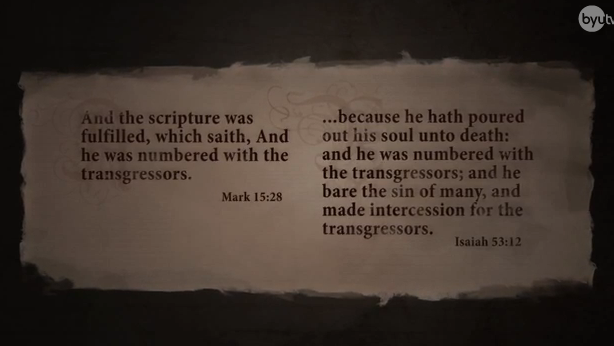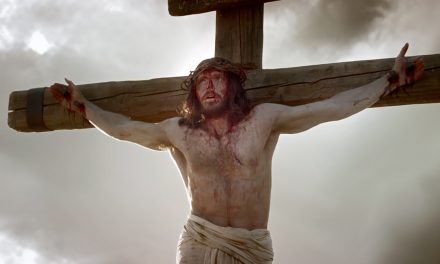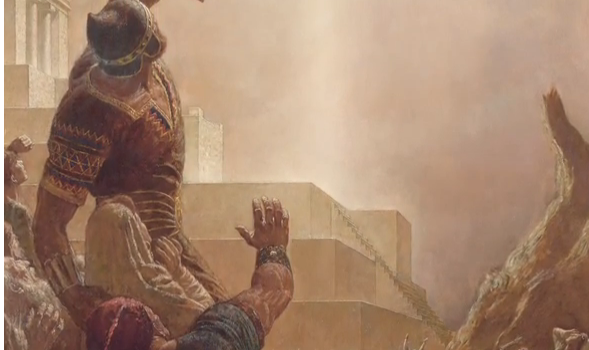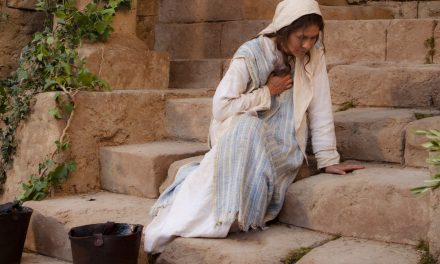JOHN TANNER: You know, Kent, you make a great point about the Second Coming. When I think about it, Jesus Himself provides the most important source of information about the Second Coming. All four Gospels present Him as speaking openly about His return. He does it in parable; He does it in prophecy; He does it with clarity. He proclaims that He will return to the earth. It’s there on the Mount of Olives where Jesus responds to His disciples’ fervent question: “When shall these things be? and what shall be the sign of thy coming, and of the end of the world?” (Matthew 24:3).
ERIC D. HUNTSMAN: Matthew 24 is the most fulsome account we have of what’s called the “Mount of Olives discourse,” where Jesus talks to His disciples about the pending destruction of Jerusalem and His eventual return.
I think the timing of this discourse is very important to His disciples. He needed to prepare them somehow. All of their messianic expectations were about to be dashed. Many of them may still have been clinging to the contemporary view that the Messiah was going to be a political and military deliverer. What He knew was in a few days He would be dead and in a tomb, and His disciples would be very, very confused. So I think it was very important that He let them know that the glorious restoration of Israel and a time when He would actually rule and reign as king would happen, but that it was not now.
RICHARD D. DRAPER: He does not give them a date, but rather He gives them a series of circumstances. Therefore the Second Coming is tied more to occurrence than it is to actual dates: when you see these things, then know that I am at the door. Verse 6: “And ye shall hear of wars and rumors of wars: see that ye be not troubled” (Matthew 24:6). It’s interesting. What the Lord is saying is, wars are going to continue. They’re just simply endemic; it’s part of the ugly history of humankind, and don’t expect them to lighten up in the last days. In fact the Lord will say they’re going to get worse. They’re going to get meaner, they’re going to get uglier, they’re going to get more broad. But keep your faith up because I’m still in charge.
Verse 14: “And this gospel of the kingdom shall be preached in all the world for a witness unto all nations; and then the end will come.” It doesn’t say that we’re going to have any conversions in those nations. Conversion is not necessary. Nonetheless the gospel must be preached with sufficient force; only then will the Lord come.
ERIC D. HUNTSMAN: One of the things that makes Matthew 24, this account of the Mount of Olives discourse, so much more extensive that the Markan or Lukan versions, is that these prophecies that all three share in common are followed by specific teachings in the Gospel of Matthew. I like to call them “parables of watchfulness.” And I love this verse 27: “As the lightning cometh out of the east, and shineth even unto the west; so shall the coming of the Son of man be.” The image is that when lightning flashes so brightly on one side of the sky that you see it all the way across, that’s how public the final return of Jesus will be.
JOHN TANNER: It’s at this moment of greatest distress for the followers of righteousness, when all seems to be lost, that one of Jesus’ own prophecies of His coming in glory will be fulfilled, the one in Matthew 24.
GAYE STRATHEARN: Yeah. “And then shall appear the sign of the Son of man in heaven: and then shall all the tribes of the earth mourn, and they shall see the Son of man coming in the clouds of heaven with power and great glory” (Matthew 24:30).
KENT BROWN: In this connection—and the sight will appear somewhere on the Mount of Olives—even the touch of His foot will rend the mount asunder. As you know, Jesus first comes to Bethlehem in obscurity. This time no one will miss Him. As John reminds us, “every eye shall see him” (Revelation 1:7).
RICHARD DRAPER: No man knoweth the day or the hour. But Paul is onto something, right, Paul knows that somebody may not know the day or the hour, but he says to the Thessalonian saints, Ye are not the children of darkness, you are the children of light, and therefore you be prepared to the day, for it will not overtake you as a thief (see 1 Thessalonians 5:4–5). And then Joseph Smith, or the Lord, picks up on that in Section 106. He says to the Latter-day Saints, you be the children of light, and I promise you that day will not overtake you as a thief (Doctrine and Covenants 106:5).
Amos 3:7: The Lord God will do nothing but what he reveals his secrets to the servants the prophets. And that being the case, then we can be assured that the saints will not be taken unawares, that the Lord’s going to tell his prophet, the Lord is going to tell his saints.
However. It is obvious through those parables that the one thing that the Lord does want to stress is that when we know the day or the hour, it’s going to be too late to prepare. The parable of the ten virgins; the cry to come, the bridegroom’s on his way. And what happens, either we’ve got our lamps full of oil, or we don’t. And if our lamps are not full of oil, we are not going to be prepared for the day.
 GAYE STRATHEARN: Any who study the signs of Jesus’ Second Coming understand that along with the preaching of the gospel to all nations, along with the gathering of Israel, there will also be a gathering of armies that fight against believers. The scriptures indicate that this battle culminates with armies amassing here at the Hill of Megiddo for the Battle of Armageddon.
GAYE STRATHEARN: Any who study the signs of Jesus’ Second Coming understand that along with the preaching of the gospel to all nations, along with the gathering of Israel, there will also be a gathering of armies that fight against believers. The scriptures indicate that this battle culminates with armies amassing here at the Hill of Megiddo for the Battle of Armageddon.
ROGER KELLER: This final battle appears to be a worldwide battle between good and evil. It is a religious battle, but it’s not going to be religious between various religious sects or that sort of thing. It will be much like the final battle that those at Qumran envisioned between the forces of God and the forces of evil, where God would ultimately conquer.
ALISON COUTTS: In Zechariah, there’s this fourfold attack on the children of Israel. There’s the capture, plunder, the ravishing of women, and the exile of 50 percent of whoever’s left after all the destruction. And this is a metaphor for how it will be in, in this last great battle. This will be a war of souls as well as a war—a physical war.
ROGER KELLER: It will be world-encompassing. Nobody will be left out. Babylon is a symbol for everything that is negative. All of that will vanish; all of that will be destroyed. But it will be a terrible last battle that will include members of The Church of Jesus Christ of Latter-day Saints. They will not be immune from the pain and suffering of that battle.
JOHN TANNER: One of the things about these apocalyptic scriptures is they can cause us to fear, and they can cause a lot of people to speculate. Sometimes I find both of those things somewhat unprofitable to my own religious worship. I think they’re given to us to help us warn us about the things that will come, and that’s a merciful thing for the Lord to do.
It’s important to know when calamities come, that these have been foreseen, that these are part of the Lord’s overall plan for this world. We don’t know tactically what’s going to happen in every battle; we don’t know all of the details. But we do know in broad terms some things that will happen in the winding up days of this dispensation.
GAYE STRATHEARN: When Jesus descends in the clouds, with fire and great glory, when His feet touch the earth again, here on the Mount of Olives where He walked thousands of years ago, then He will usher in the great and peaceful millennium.
ANDREW SKINNER: In fact with very vivid and famous language the prophet Isaiah describes the millennial reign of Jesus Christ. Here are his words: “With righteousness shall he judge the poor, and reprove with equity for the meek of the earth: . . . And righteousness shall be the girdle of his loins, and faithfulness the girdle of his reins. The wolf also shall dwell with the lamb, and the leopard shall lie down with the kid; and the calf and the young lion and the fatling together; and a little child shall lead them. . . . They shall not hurt nor destroy in all my holy mountain: for the earth shall be full of the knowledge of the Lord, as the waters cover the sea” (Isaiah 11:4–9).
GAYE STRATHEARN: That really is something to look forward to, isn’t it.
ANDREW SKINNER: It truly is.
SUSAN EASTON BLACK: Jesus coming in clouds of glory. The Second Coming of the Savior will be a worldwide event, long sought for by Christians since the death of Jesus Christ really. When He comes, this amazing millennial reign. Who will be with Him? The righteous, they will come with Him. Even the righteous who are still in their graves will rise up. It will be a wonderful time for the righteous. It will be a wonderful time for parents who will be able to raise children who will grow up unto salvation.
JOHN TANNER: There’s a sort of symmetry in the way the Lord designs history, isn’t there. You begin with a paradisiacal state, and we’re movingtoward a paradisiacal state, only much more exalted, because we’re not just coming back to the beginning, we’re coming back to something even greater. We’ll come back not just as single, solitary individuals. The winding efforts, the, the work of the millennium, our work now is a family work. It’s a scene of generations; it’s a stitching of things together, and the Lord, Christ, will bring to the Father the kingdom that is a kingdom of families bound by covenants.
VIRGINIA H. PEARCE: I believe there is a sense of loneliness in every human heart, and separation, that we don’t talk very much about. But if you look at the way we behave, we’re acting to fill that loneliness. Everyone does. You know, will money make me feel less hollow, is there one person out there I can love and then I will never feel lonely again? Will my children if I have enough of them and they’re good enough, will they make me so I will never be lonely again? No. No. We are lonely animals. That is the nature of the mortal condition. Because we are separated from God. And so when we talk about the final winding up scene, I think the unfathomable part about it will be that that will be gone. That we will be back in His presence, and we will feel complete, we will feel whole, we will feel safe, we will feel part of everyone. We will all be just awash in this heavenly love of God, and the Savior. That’s what He is about, is bringing the whole human family into that circle. I think when we use the word encircled in His arms, that’s all of us together. The whole human family who confess His name and partake of that will be reunited in love in a way that we can only imagine now.
RICHARD HOLZAPFEL: It seems that God’s intended will from the beginning was this family, this eternal family, would come to earth to experience life in all its possibilities, and thus enriching their journey to become like Jesus. And Jesus as the firstborn, the preeminent Son of God, chose to fulfill the will of God, knowing that by fulfilling God’s will He was bringing about the immortality and eternal life of humans, both men and women, everyone who’s ever been born, who’s now living and who will yet live. And thus as God of the Old Testament, He announced his law, His covenant. He promised Israel their redemption. Now the ultimate fulfillment of that promise was in His own birth when He came as the Son of God, God’s unique, loving Son, and it’s through Him, through Jesus of Nazareth, that God’s love is truly manifest.
GAYE STRATHEARN: The mortal footsteps of one man from the meridian of time, even Jesus of Nazareth, were really just a continuation of steps begun in the infancy of the universe. Before the foundation of this earth was laid, God’s family put their faith in the firstborn of the Father, as the central figure in a plan designed to exalt God’s children.
JOHN TANNER: And “they shall hunger no more, neither thirst any more, neither shall the sun light upon them nor any heat. For the Lamb which is in the midst of the throne shall feed them, and shall lead them unto living fountains of waters: and God shall wipe away all tears from their eyes” (Revelation 7:16).
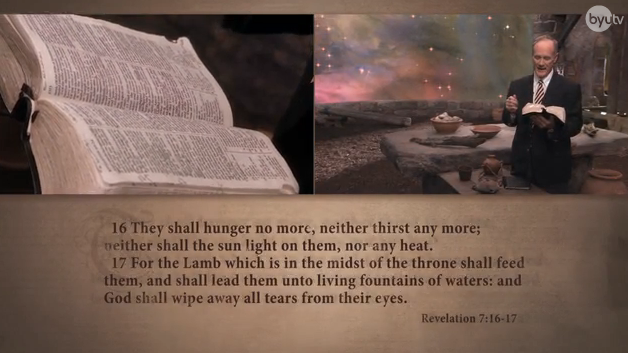 JUAN HENDERSON: Without the Savior, the plan of the Eternal God our Father in Heaven would be completely frustrated. Unless the Savior loosed the bands of death so that we can be resurrected like He is and live eternally, and without His suffering in the Garden of Gethsemane, which frees us if we repent from our sins. But not only that, it changes us into true disciples of Christ, where we put off the natural man. Without the Savior’s role in that, we wouldn’t even be able to stand in the presence of God. If we choose, we can follow the Savior and do the things that He’s invited us to do, and return to be with him forever and ever.
JUAN HENDERSON: Without the Savior, the plan of the Eternal God our Father in Heaven would be completely frustrated. Unless the Savior loosed the bands of death so that we can be resurrected like He is and live eternally, and without His suffering in the Garden of Gethsemane, which frees us if we repent from our sins. But not only that, it changes us into true disciples of Christ, where we put off the natural man. Without the Savior’s role in that, we wouldn’t even be able to stand in the presence of God. If we choose, we can follow the Savior and do the things that He’s invited us to do, and return to be with him forever and ever.
RICHARD HOLZAPFEL: His original intent was to bring us back as a family. And he chose Jesus of Nazareth, His firstborn son, the Lord God Jehovah, the God of the Old Testament, Jesus the Messiah, Jesus the resurrected Lord, to accomplish His will. And so we stand in amazement that He chose to fulfill completely and finally God’s ultimate will to bring us back into His presence, that we may worship Him. And in that is God’s love manifest, that He died for us while we were yet sinners.
KENT BROWN: Notice Jehovah in the Old Testament and Jesus in the New, the firstborn Son becomes the first fruits of the Resurrection. And because the resurrected Jesus speaks openly of His glorious return, since that time hundreds of millions have been watching for Him. Jesus the Christ will reign during a millennium of peace and proselytizing, at the end of which every soul will have received an opportunity to accept Him or reject Him as the Son of God and Savior of the world. It is then that Satan and his minions are finally cast into outer darkness, and the earth receives its celestial glory. It is then that the earthly Jesus’ words, His prayer in Galilee, is finally, completely fulfilled: “Thy kingdom come, thy will be done in earth as it is in heaven.”

